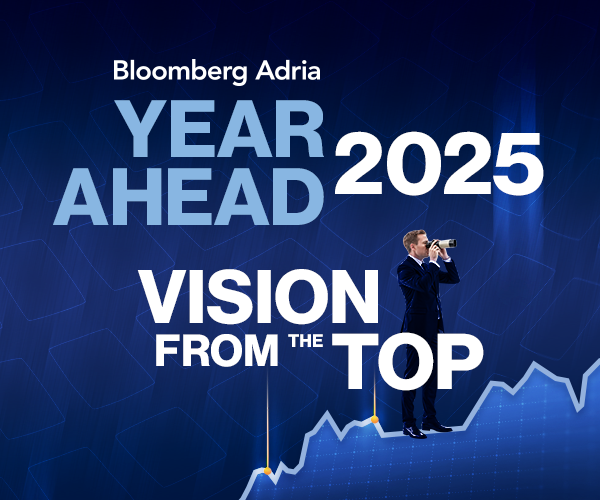If I had to choose just a few words that would reflect 2024, my top picks would surely be AI, data value, hyper-personalisation of user experience. These concepts will definitely continue to follow us in the coming year, and for good reason.
The synergy of data management and artificial intelligence is fundamentally reshaping the payment industry, increasing efficiency, while continuously improving payment security and customer experience. With the rapid growth of online shopping and e-commerce development in our region, digital transactions are becoming increasingly prevalent, and the ability to manage and use vast amounts of data is becoming a competitive advantage for financial institutions, merchants, as well as the entire payment industry.
The data-based economy is on the constant rise, and the European Commission estimates it will be worth EUR 829 billion in the EU in 2025. This would mean that in one year it will have grown from 2% to 6% of the European GDP.
Safety first
When we fight against all kinds of fraud, data is a valuable resource and superpower of our brand. Visa is the first global network to introduce machine learning in its operation in order to prevent fraud and increase the level of payment security 30 years ago. By using existing data, AI systems can identify anomalies that may indicate fraudulent activity, allowing for immediate intervention in order to protect our customers. We have 60% more data than our competitors combined. Advanced AI models adapt and learn from new data, continually perfecting their predictive accuracy. This ability not only minimises losses, but also increases consumer trust in digital payment methods.
In recent years, Visa has invested more than USD 9 billion in new technology solutions in the cybersecurity sector. Of these, USD 500 million was invested in artificial intelligence and data infrastructure, which allowed for the development of 100 different tools. In this way, we aim to protect our customers and continue to be a few steps ahead of others. In just one year, Visa successfully prevented fraud amounting to USD 27.1 billion.
Since Visa transactions are processed in 300 milliseconds, the speed and accuracy of our AI are key to thwarting fraudsters. It is owing to artificial intelligence that we can offer companies and customers an optimal balance between robust security and user experience. For this purpose, we apply the latest deep learning in order to reduce false declines by as much as 20%, reducing uncertainty for card holders and losses for merchants.
Behavioural finance
AI-supported data analytics allows us to offer our customers highly personalised experiences. Each data is not just a simple data, but an insight into the customer’s behaviour. By analysing behaviour and preferences, today we can customise offers to individual clients, either through promotion targeting, customised payment solutions or enhanced loyalty programs. This hyper personalisation strengthens the relationship with the customer, improving brand loyalty in a competitive environment.
Automation for the purpose of increasing efficiency
Smart data management also encourages operational efficiency in payment processing. Automated systems can process numerous transactions simultaneously, reducing processing time and reducing costs associated with manual monitoring. This scalability is especially useful during the period of mass shopping. In addition, AI can optimise operations such as user support chatbots that answer common questions, allowing staff to focus more on strategic tasks.
Innovation at the core of every step forward
What we must never forget is how data and AI intertwine to drive innovation in payment solutions. Technologies such as blockchain, digital wallets and contactless payments are increasingly integrating with AI to offer a seamless, secure and efficient transaction experience.
At Visa, we provide access to our ecosystem through continuous innovation, secure payments, with a commitment to responsible and inclusive business operation. By collaborating with all the stakeholders in the payment ecosystem, we can develop user-focused customised solutions that address actual issues, providing an opportunity to push the boundaries again. Through financial inclusion, on the one hand, and personalisation, on the other, we enable a better future for all.













.png)